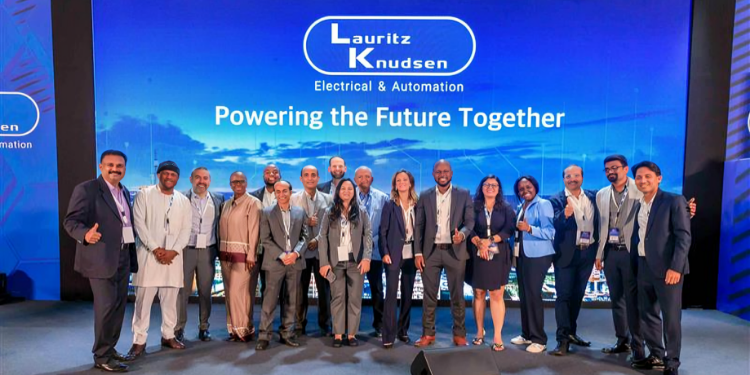Written By: Faith Jemosop
South Africa has signed a multi-billion-dollar energy agreement with Germany, a move that signals a new chapter in the continent’s shift from coal dependency to clean energy.
This strategic deal places green hydrogen, solar, and wind projects at the center of South Africa’s energy agenda, supported by funding and technology transfer from the G7-backed Just Energy Transition Partnership (JETP).
It not only positions South Africa as a clean energy hub in Africa but also illustrates how international cooperation can drive the global energy transition forward.
A Game-Changing Partnership in the Making
South Africa is one of the most coal-dependent countries in the world, with over 80% of its electricity currently generated from coal. This reliance has long made the country one of the top carbon emitters in Africa. The recent agreement with Germany is a bold step towards reversing that trend.
At the heart of the deal is Germany’s commitment to assist South Africa in developing large-scale renewable energy infrastructure, especially green hydrogen production, solar parks, and wind farms.
These efforts are part of the broader Just Energy Transition Partnership (JETP), a global initiative launched at COP26 in 2021 to accelerate decarbonization in heavily coal-reliant nations through financial and technical support.
Germany, which has been seeking long-term alternatives to Russian energy supplies, views this partnership as vital for achieving its own net-zero goals by 2045. By securing green hydrogen and other clean energy exports from South Africa, Berlin ensures a sustainable and geopolitically safe energy pipeline.
The agreement is part of a $8.5 billion commitment by G7 countries under the JETP framework, with Germany playing a leading role in this tranche. The funding will support:
- Green Hydrogen Production Facilities: These will convert renewable electricity into hydrogen fuel through electrolysis, a clean energy carrier vital for decarbonizing heavy industries.
- Large-Scale Solar Farms: Targeted in high-irradiance regions like the Northern Cape and Free State.
- Wind Power Installations: Focused along South Africa’s coastal corridors such as the Western Cape and Eastern Cape.
- Grid Modernization: Strengthening the national transmission network to handle variable renewable energy inputs.
- Skills Transfer & Employment: German partners are expected to support vocational training and clean energy job creation in South Africa.
Why Green Hydrogen Matters
Green hydrogen is emerging as a key player in global decarbonization efforts. It can power vehicles, ships, and industries without emitting greenhouse gases. For Germany and Europe, importing green hydrogen from sun-rich nations like South Africa is a logical solution to domestic energy shortages.
South Africa’s competitive edge lies in its abundant solar and wind resources, low land costs, and existing industrial base, making it ideal for producing hydrogen cost-effectively. Pilot projects are already underway in Boegoebaai and Coega, with further investments expected from both local and international stakeholders.
Also read: Why Battery Storage Is the Real Game-Changer
The energy deal marks a turning point in South Africa’s fight to break free from coal. Eskom, the country’s embattled state utility, has faced years of rolling blackouts caused by aging coal plants, mismanagement, and a strained grid. Transitioning to renewable sources not only reduces emissions but also diversifies the energy mix to improve energy security.
Phasing out coal is politically sensitive. The coal sector is a major employer, especially in Mpumalanga province. The JETP aims to address this with a “just transition” approach — ensuring that no one is left behind. This includes retraining coal workers, investing in affected communities, and fostering local ownership of renewables.
Despite the excitement, several challenges threaten to slow the implementation of this green agenda:
- Grid Capacity: South Africa’s grid infrastructure is outdated and poorly equipped to integrate intermittent renewables. Without urgent upgrades and smart-grid technologies, new projects could face delays.
- Political Instability: With looming elections and rising populism, sustained political support for energy reforms is not guaranteed.
- Policy Uncertainty: Regulatory red tape and bureaucratic bottlenecks have historically hindered energy projects in South Africa.
- Local Resistance: Coal lobbies and mining communities may resist the transition, especially if compensation and retraining promises fall short.
Also read: Top 10 Energy Storage Companies in Africa Driving the Continent’s Renewable Future
Germany and other G7 nations must remain engaged beyond initial funding. Long-term success depends on continuous diplomatic, technical, and economic support to navigate these hurdles.
If successful, South Africa’s green transition could become a model for other African nations. Countries like Nigeria, Kenya, Egypt, and Morocco are also exploring large-scale renewables, but lack the financial and technical support needed for full-scale deployment.
By demonstrating how climate finance, international collaboration, and domestic policy alignment can work together, South Africa has a chance to lead by example. This deal shows that clean energy doesn’t have to come at the cost of development, it can drive development.















